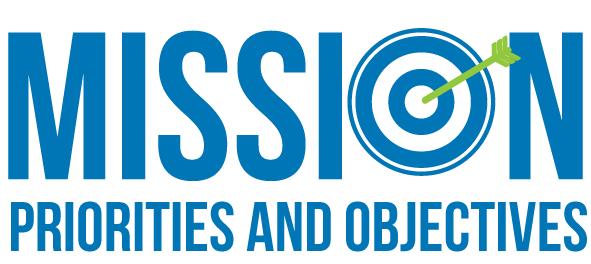
Mission:
To promote quality mental health and substance use services through training, technical assistance, research, and policy development.
Priorities and Objectives:
• Change the perception, impact and outcomes associated with current views of mental illness and substance use disorders.
• Develop policy and educational initiatives required to create more understanding and informed actions related to mental illness and substance use disorders in key life areas such as the workplace, school and home.
• Gain greater recognition, acceptance, education and treatment of mental illness and substance use disorders to strengthen children and families.
• Conduct anti-stigma campaigns, educational activities and research.
• Identify and address mental health and substance use policy issues.
• Focus on identifying best practices in mental illness and substance use prevention and treatment.
Geographic Areas Served
While the State of New Jersey is NJMHI’s predominant service area, several initiatives have reached and benefited national and international populations.
For example, NJMHI promulgated the Model Mental Health Program for Hispanics and a related report, which have been used by behavioral healthcare providers nationwide. In addition, while doing business as the National Resource Center, an online toolkit, Enhancing Mental Health Service Delivery to Hispanics: An Online Toolkit for Eliminating Disparities, was created to provide various print, video and audio resources designed to assist mental health agency administrators, along with their governing leadership and direct service providers, to best attract and engage Hispanics as staff and serve this population in a culturally and linguistically competent manner.
The cultural competence training conferences that the National Resource Center presented attracted audiences throughout the nation. The National Resource Center was also called upon to present at other organizations’ training events both throughout the U.S. and in several foreign countries.
The farthest reach NJMHI achieved is Sri Lanka, which benefited from mental health training through the Tsunami Mental Health Relief Project, an initiative conceptualized by Executive Director Debra L. Wentz, PhD, in response to the tragic tsunami that occurred in December 2004. The tsunami took the lives of more than 225,000 unsuspecting residents of Southeast Asia. The world watched in horror as every media outlet brought attention to the suffering. Even though the camera lenses have moved on to other crises, the suffering has continued. NJMHI recognized that the pain of this tragedy would remain long after the debris was removed and the homes were rebuilt. Both the immediate and long-term mental health needs of the tsunami survivors were unlike anything the world had ever seen. It was within the scope of NJMHI’s mission and vision to include Sri Lanka within its vision, which is why NJMHI created the Sri Lanka Mental Health Relief Project and continued to support the project through June 2019 as the need remained – not only for survivors of the 2004 tsunami, but also individuals who had endured other traumatic experiences in Sri Lanka.
